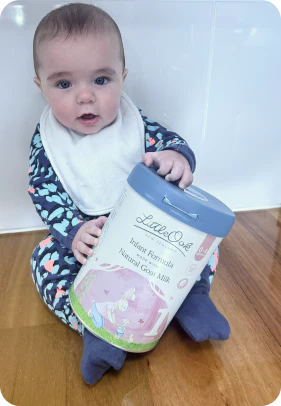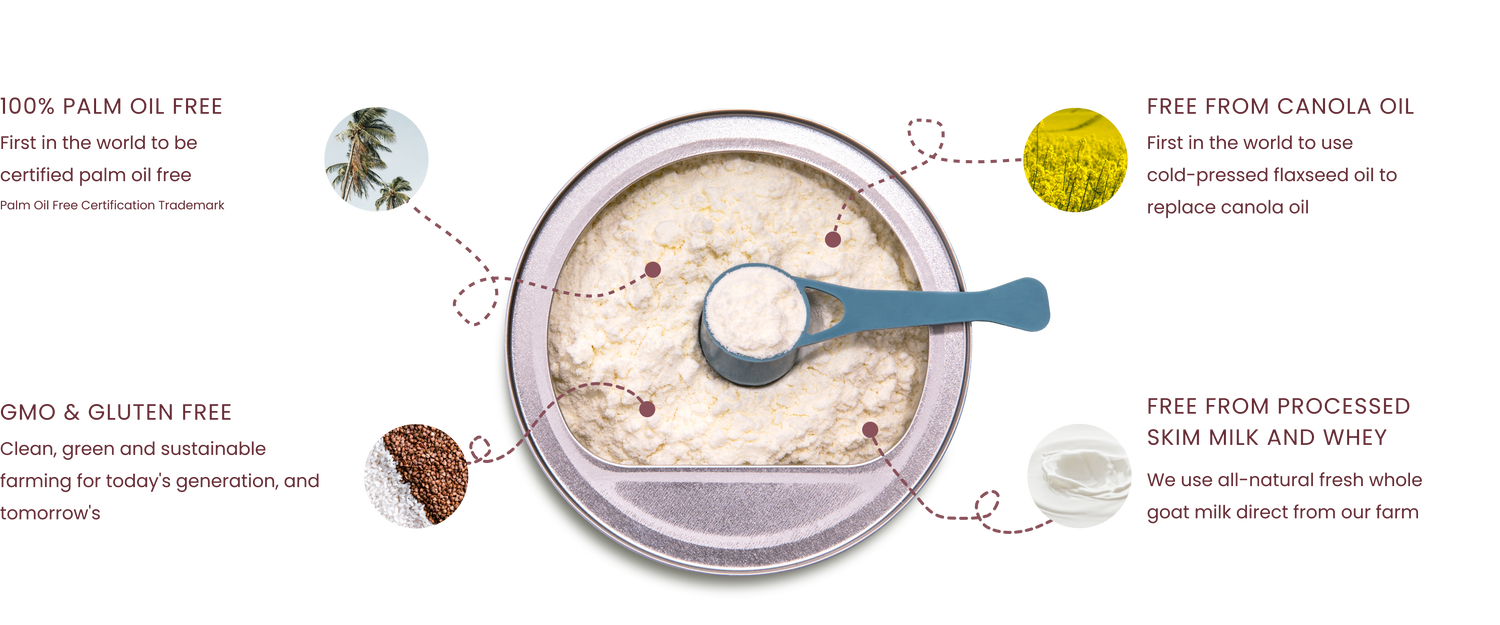There are many reasons why your baby might be constipated, and this can make it tricky to figure out how to help your child. That’s why we sat down with Paediatric Naturopath Lisa Moane to get expert answers to all your questions. From diet changes and inappropriate introduction of solids all the way to microbiome imbalances, Lisa shares everything you need to know about constipation in children.
Symptoms of constipation
Symptoms of constipation include irritability, a drop in appetite, poor sleep, withholding behavior, straining, rabbit pellet stools, tummy pains, bloating, nausea, reflux, and incontinence. We realise this is quite a list, so make sure you’re watching out for the red flags. If your little one is persistently vomiting, is experiencing weight loss or poor growth, or if there is blood in their poop, it's important to consult a doctor.
Firstly, there’s 2 types of constipation in children: organic constipation and functional constipation. Organic constipation is far less common and is usually caused by a structural or metabolic reason such as an allergy, neuropathic disorder, a reaction to certain medications or some type of malformation in the body that prevents your bub from passing stools. Functional constipation is far more common, so here are some key factors to consider:
Diet Issues
Depending on how old your child is and what foods they are eating, there could be something they don’t agree with or are allergic to. They may also not be eating enough fiber, which helps soften the stool and move it through the digestive tract.
Lack of physical activity
Its important for children to have clear eating times and clear activity times. At the minimum, we need some level of physical activity to allow our bodies to pass a stool.
Withholding behavior in children
Stool withholding behavior is fairly common in children, especially if they are potty training. Though it can be stressful and confusing to parents, your child's constipation may, in reality, be due to them simply not wanting to “go.”
Microbiome imbalances
Imbalances in the microbiome may also cause constipation. This can be more common in c-section babies, as the delivery method can play a role in altering the gut microbiome, as opposed to vaginal delivery (probiotics can help with this).
Inappropriate introduction of solids
Inappropriate introduction of solids can contribute to constipation - whether that be due to starting solids too early or with non-ideal food choices (such as rice cereal). Ideally, your baby should be starting solids at around 6 months. Any later than this, and it could potentially lead to nutritional deficiencies or allergies. You’ll want to introduce your little one to as many foods as possible during this 6 month stage. Fun fact: allergies are caused when your little one is exposed to a new food through their skin instead of their gut. When you introduce your little one to a range of new foods, this can help prevent allergies from arising.
.....
LittleOak has been nourishing children for many years and feeds millions of infants, babies and children across the globe each and every day, in countries such as Australia, New Zealand and Singapore. In the US, we're proud to have our FDA compliant Toddler Milk available for families.




























